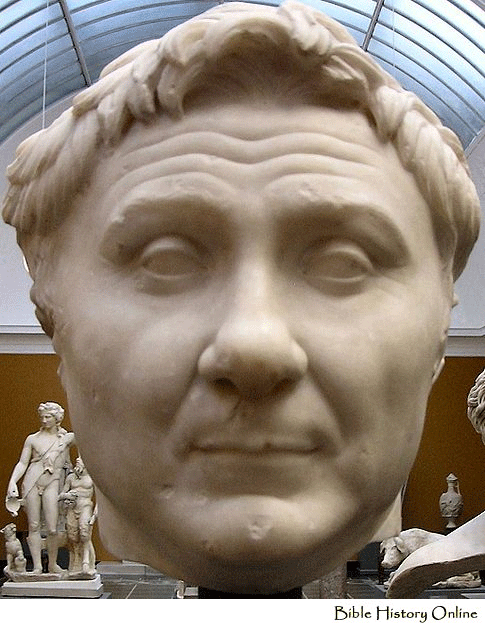
Pompey was a military genius and his soldiers recognized this and referred to him as “Magnus” which means the great, thus the name Gnaeus Pompeius Magnus.
Source:

Pompey was a military genius and his soldiers recognized this and referred to him as “Magnus” which means the great, thus the name Gnaeus Pompeius Magnus.
Source:

The etymology of the name Jerusalem is not certain; it is apparently of Semitic origin. An Egyptian notice from the third quarter of the nineteenth century B.C. mentions Urusalimum. The Assyrians called it Ursalimmu. Modern scholars take these names ...

The ancient sun dial reveals the hours in a day. It has a surface with hour lines and a stick or gnomon which casts a shadow as the sun advances in its daily course. The sun dial is mentioned in the Bible as far back as the time of King Ahaz. Herodot...
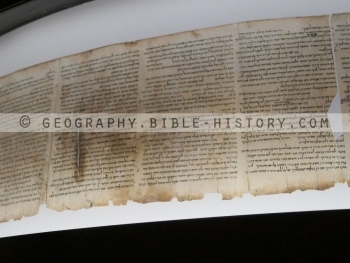
Among the Dead Sea Scrolls discovered in 1947 was found the “Scroll of Isaiah” inside of a clay jar and well preserved, dating to the 2nd century BC. The entire Hebrew text of the prophet Isaiah was found in “perfect” condition. When compared...
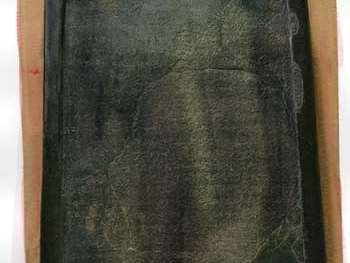
The Moabite Stone was discovered in 1868 about 20 miles east of the Dead Sea at Moab. It was a black and blue basalt stone dating back to around 830 BC, discovered by a German Missionary named F.A. Klein. It contains an inscription that reads: “I M...
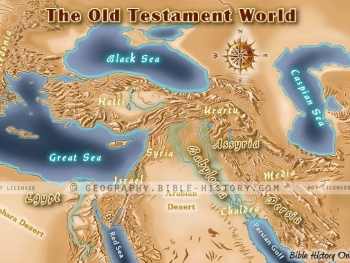
The Caspian Sea was not mentioned in the Bible. In Old Testament times the Caspian Sea was mainly just a large body of water marking the northeast corner of what we recognize as the world of the Old Testament. One interesting fact is that the Caspian...
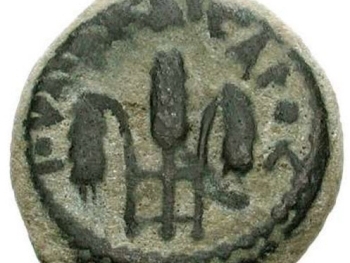
The ancient historian Tacitus mentioned Pontius Pilate by name (Ann. xv. 44) and that he was appointed in A.D. 25-26, “in the twelfth year of Tiberius.” Pontius Pilate was the sixth Roman procurator of Judea, and under him our Lord worked, suffer...

In ancient Roman religion, Jupiter was the chief of the gods. The name “Jupiter” means “the best and greatest” (Optimus Maximus). He was identified with the Greek god Zeus. Jupiter was the spirit of the sky and worshiped as the god of thunder...
Geographically, the Old Testament “world” extended from the Nile river in the south west, to eastern Greece in the north west, to the Caspian Sea on the north east to the mountains just east of the Persian Gulf on the south east. The entire area ...
The Bible does not provide specific details about Abraham's dress or clothing. However, we can infer some general information about the attire of people during that time period and cultural context. Abraham lived during the early second millennium BC...
The Western Wall, also known as the Wailing Wall or Kotel, is a significant religious site in Jerusalem, Israel. It is a section of the retaining wall that once surrounded the Second Temple's courtyard and is revered as the most sacred site for Jewis...
The ancient Greeks and Romans left a lasting legacy in the field of medicine, with their innovative theories and treatments that shaped the foundations of Western medicine. Drawing upon a combination of empirical observations, philosophical insights,...
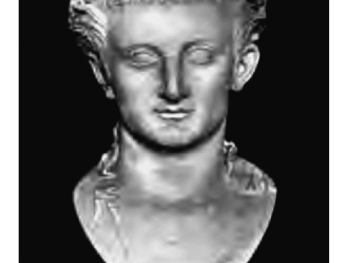
It is not known whether Tiberius had heard of Jesus, or knew about the crucifixion of Jesus. Word about Jesus and his miracles spread quickly throughout the Roman Empire, even to the Imperial Palace on Palatine Hill, but Tiberius had retired to his p...
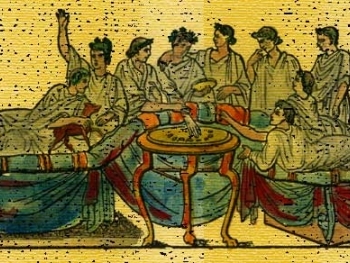
The ancient Hebrews, Egyptians, and Greeks. used to eat sitting on mats spread on the floor. The Romans actually reclined on couches around a table. The couches were arranged forming three sides of a square. The open side was for the servants who wou...
The Dead Sea holds several significant aspects in biblical and historical contexts. Here are some key points: Geological and Natural Features: The Dead Sea is a saltwater lake located at the lowest elevation on Earth. Its high salt concentration make...
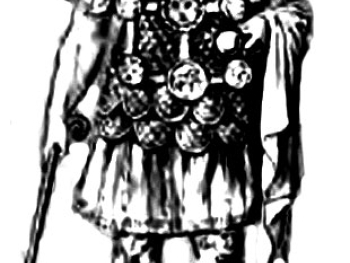
In ancient Rome the “centurion” meant “captain of 100”, and the Roman centurion was captain over 100 foot soldiers in a legion. The centurion was loyal and courageous, beginning as a soldier in the army and working their way up the ranks. The...
The Bible does not specifically mention the Adriatic Sea as a place of sudden storms. However, the Bible does contain accounts of storms and tempests occurring at sea in various locations, emphasizing the unpredictable and perilous nature of such eve...
In the Bible, an alabaster jar refers to a type of container made from alabaster stone. Alabaster is a soft, white or translucent mineral often used in ancient times for crafting vessels or containers for various purposes. One notable mention of an a...
Ancient Rome is often associated with grand architecture, legendary emperors, and mighty legions. However, the daily life of women in ancient Rome remains an intriguing and less-explored aspect of this civilization. While gender roles and expectation...
Welcome to Free Bible: Unearthing the Past, Illuminating the Present! Step into a world where ancient history and biblical narratives intertwine, inviting you to explore the rich tapestry of human civilization.
Discover the captivating stories of forgotten empires, delve into the customs and cultures of our ancestors, and witness the remarkable findings unearthed by dedicated archaeologists.
Immerse yourself in a treasure trove of knowledge, where the past comes alive and illuminates our understanding of the present.
Join us on this extraordinary journey through time, where curiosity is rewarded and ancient mysteries await your exploration.




